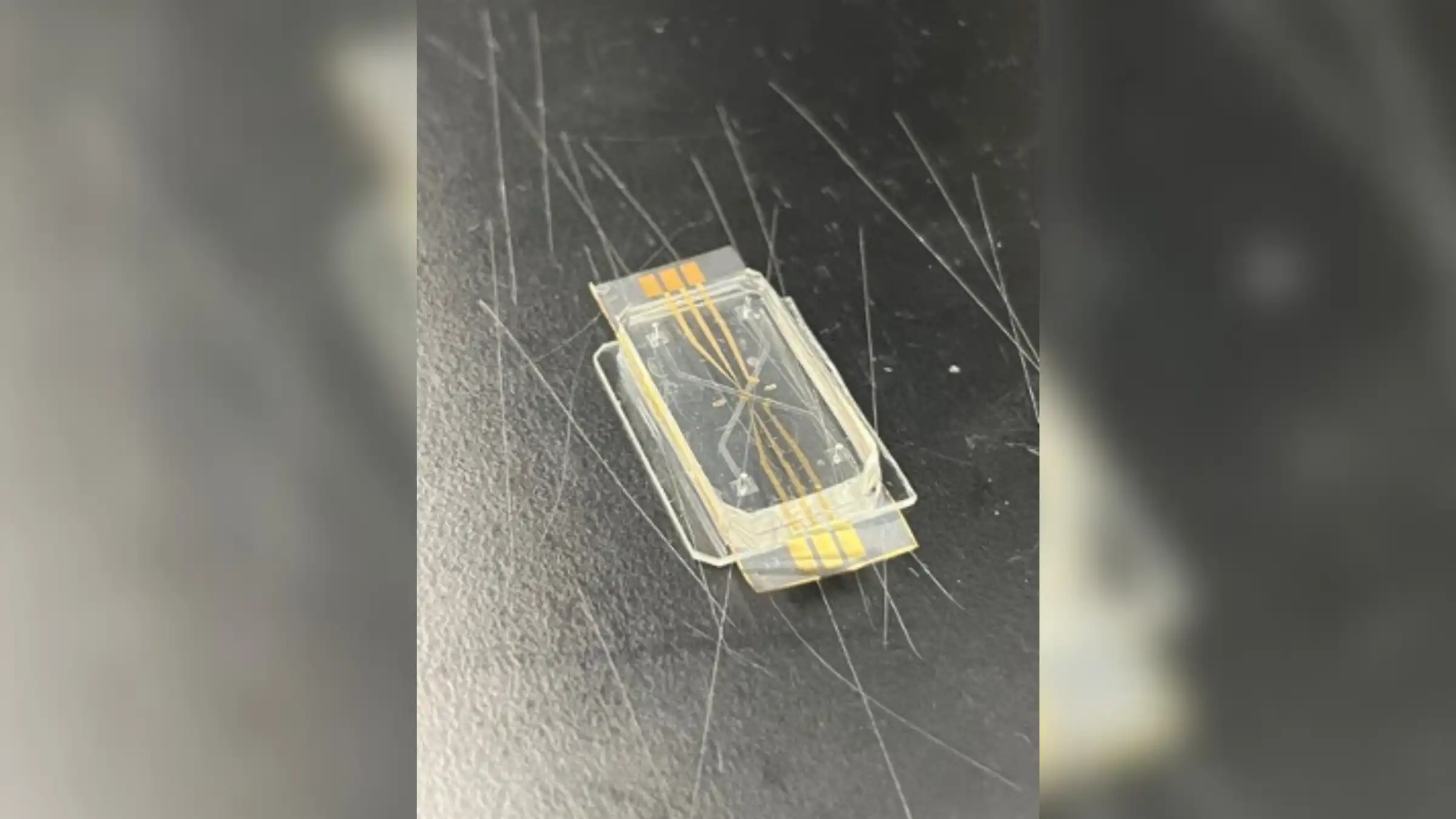Scientists unveil new heart-on-a-chip | Live Science
New 'heart-on-a-chip' could change the future of drug testing and disease research. Scientists have developed a device the size of a credit card mimicking the interactions of cells within a human heart.
The heart is a powerful symbol of love and one of the most crucial organs in the human body. To gain a deeper understanding of the inner workings of the heart, a team of scientists at the National Institute of Standards and Technology (NIST) has developed a device the size of a credit card that replicates the biology of the heart.
This innovative "heart-on-a-chip" device mimics the interactions of cells within a human heart and has the potential to revolutionize the study of heart disease, which is the leading cause of death in the U.S. Traditional animal experiments often fall short in capturing how a disease will progress or how a drug will behave in the human body. As a result, researchers are striving to create more accurate ways of replicating the complexity and intricacy of human organs in the lab. This is especially crucial in drug development, as the majority of candidate drugs fail clinical trials in people.
New, human-like models that are being developed include organoids, miniature organs grown from stem cells, and organ-on-a-chip models, where cells found in specific tissues are grown on a chip that replicates the physiological conditions of an organ in the body. Many organs have been modeled in such chips, including the lungs, kidneys, and the vagina.
Scientists have specifically developed heart-on-a-chip models to study how the heart heals after injury, heart disease, and to aid in drug discovery. These models have even been sent to space to study the effect of microgravity on the heart.
In a statement released on Feb. 6, the team at NIST said that this technology, including their new heart-on-a-chip model, could streamline drug development, making it faster, safer, and more precise. Importantly, these models would not replace human clinical trials; instead, they would reduce or replace the animal testing needed before human trials begin.
The "heart-on-a-chip" model developed by NIST has transparent or semi-transparent covers, allowing researchers to observe fluids running through tiny channels that imitate the blood vessels in the heart. Human heart cells are grown inside these channels, enabling scientists to study how the cells react to different drugs. Unlike existing heart-on-a-chip models, the cells in the new NIST model can communicate with each other via signaling molecules.
The next step for the team is to assess how these heart cells behave under normal and stress-induced conditions. Additionally, different organ chips can be linked together, allowing scientists to study how these organs interact after exposure to certain drugs.
While organ-on-a-chip models show great potential, significant work is needed before they can be used in preclinical drug tests. For example, the heart cells used in these devices are grown from stem cells and often don't fully mature. The materials used in heart-on-a-chip models also need to be refined to ensure accurate drug tests.
Despite these challenges, with further development, organ-on-a-chip models may revolutionize the way new drugs are developed and tested, potentially causing a "paradigm shift" in the industry. The Food and Drug Administration has already recognized the potential of these devices by ruling that they could stand in place of traditional animal testing, provided that the data they generate is robust enough.
In conclusion, the development of the "heart-on-a-chip" model by the NIST team represents a significant advancement in the study of heart disease and drug discovery. This innovative technology has the potential to improve the accuracy and efficiency of drug development, ultimately benefitting human health.












Comments on Scientists unveil new heart-on-a-chip | Live Science